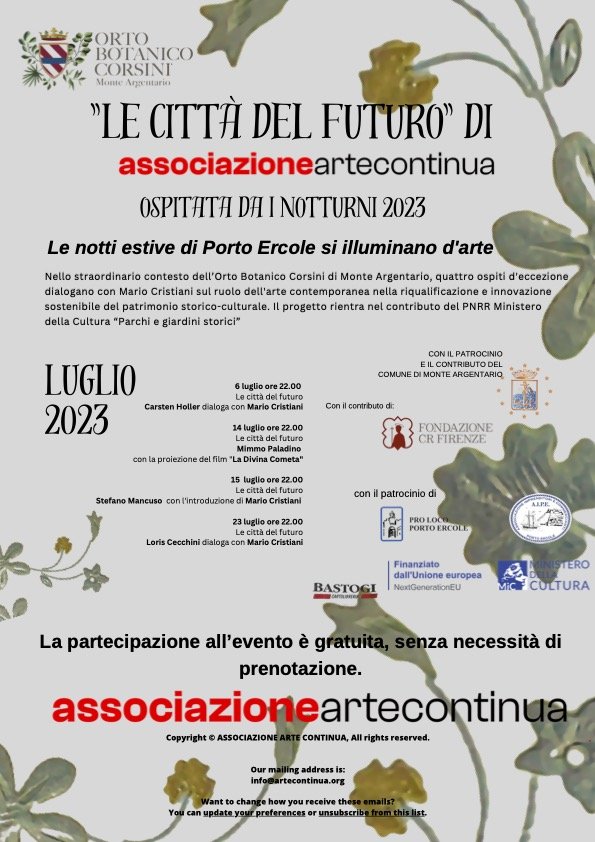The peoples of the world always seem to face the future with a strong attraction towards novelty, especially in a consumerist sense, but with the risk of uprooting and loss of self-awareness, or, on the contrary, with a resistance to change, often motivated by a fear of contamination, which is based on stereotypes of the purity and antiquity of their roots.
How can one experience the history as a key and support for current events and not as a brake? And can you, at the same time, produce innovation and contemporary art, with the consciousness of not only living in the present but having a past and having to leave a future for those who will come after us?
“Le Città del Futuro"is conceived as a series of dialogues between artists from the international community and authoritative protagonists of our time, to understand what role contemporary art can play in acting as a stimulus and, at the same time, as a tool, to give substance to an idea of the city of the future.
MEETINGS 2023:
Thursday 6 July 10 p.m.
Cities of the Future: Carstem Holler dialogue with Mario Cristiani.
Thursday 13 July 9.30 p.m.
Cities of the Future: Mimmo Paladino dialogue with Mario Cristiani
22.30 film screening "The Divine Comet.
Saturday 15 July 10 p.m.
Cities of the Future: Stefano Mancuso with the introduction of Mario Cristiani.
Sunday 23 July 10 p.m.
Cities of the Future: Loris Cecchini dialogue with Mario Cristiani.

